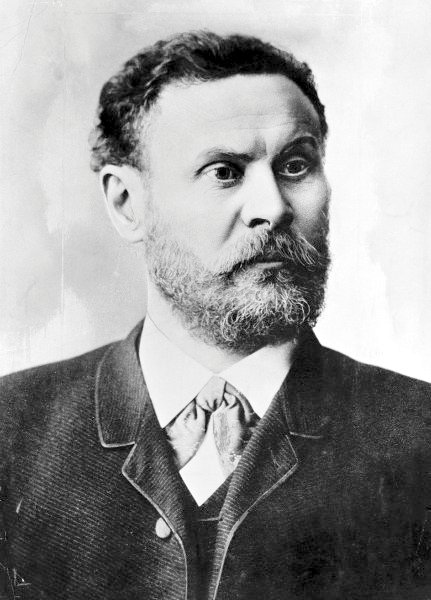Letter to Moritz von Egidy (c. January 1894) - Original German text online http://www.lilienthal-museum.de/olma/l1852.htm
Contexto: I, too, have made it a lifelong task of mine to add a cultural element to my work, which should result in uniting countries and reconciling their people. Our experience of today's civilisation suffers from the fact that it only happens on the surface of the earth. We have invented barricades between our countries, custom regulations and constraints and complicated traffic laws and these are only possible because we are not in control of the 'kingdom of the air', and not as 'free as a bird'.
Numerous technicians in every state are doing their utmost to achieve the dream of free, unlimited flight and it is precisely here where changes can be made which would have a radical effect on our whole way of life. The borders between countries would lose their significance, because they could not be closed off from each other. Linguistic differences would disappear, as human mobility increased. National defence would cease to devour the best resources of nations as it would become impossible in itself. And the necessity of resolving disagreements among nations in some other way than by bloody battles would, in its turn, lead us to eternal peace.
We are getting closer to this goal. When we will reach it, I do not know.
Otto Lilienthal: Frases en inglés
Letter to Moritz von Egidy (c. January 1894) - Original German text online http://www.lilienthal-museum.de/olma/l1852.htm
Contexto: I, too, have made it a lifelong task of mine to add a cultural element to my work, which should result in uniting countries and reconciling their people. Our experience of today's civilisation suffers from the fact that it only happens on the surface of the earth. We have invented barricades between our countries, custom regulations and constraints and complicated traffic laws and these are only possible because we are not in control of the 'kingdom of the air', and not as 'free as a bird'.
Numerous technicians in every state are doing their utmost to achieve the dream of free, unlimited flight and it is precisely here where changes can be made which would have a radical effect on our whole way of life. The borders between countries would lose their significance, because they could not be closed off from each other. Linguistic differences would disappear, as human mobility increased. National defence would cease to devour the best resources of nations as it would become impossible in itself. And the necessity of resolving disagreements among nations in some other way than by bloody battles would, in its turn, lead us to eternal peace.
We are getting closer to this goal. When we will reach it, I do not know.
Variant translation: Artificial flight may be defined as that form of aviation in which a man flies at will in any direction, by means of an apparatus attached to his body, the use of which requires the dexterity of the user.
The Romance of Aeronautics (1912)
Contexto: Artificial flight may be defined as that form of aviation in which a man flies at will in any direction by means of an apparatus attached to his body, the use of which requires personal skill. Artificial flight by a single individual is the proper beginning for all species of artificial flight, as the necessary conditions can most easily be fulfilled when man flies individually.
“We are getting closer to this goal. When we will reach it, I do not know.”
Letter to Moritz von Egidy (c. January 1894) - Original German text online http://www.lilienthal-museum.de/olma/l1852.htm
Contexto: I, too, have made it a lifelong task of mine to add a cultural element to my work, which should result in uniting countries and reconciling their people. Our experience of today's civilisation suffers from the fact that it only happens on the surface of the earth. We have invented barricades between our countries, custom regulations and constraints and complicated traffic laws and these are only possible because we are not in control of the 'kingdom of the air', and not as 'free as a bird'.
Numerous technicians in every state are doing their utmost to achieve the dream of free, unlimited flight and it is precisely here where changes can be made which would have a radical effect on our whole way of life. The borders between countries would lose their significance, because they could not be closed off from each other. Linguistic differences would disappear, as human mobility increased. National defence would cease to devour the best resources of nations as it would become impossible in itself. And the necessity of resolving disagreements among nations in some other way than by bloody battles would, in its turn, lead us to eternal peace.
We are getting closer to this goal. When we will reach it, I do not know.
The Romance of Aeronautics (1912)
Der Vogelflug als Grundlage der Fliegekunst (1889); English edition: Birdflight As The Basis of Aviation (1911).
“To design a flying machine is nothing. To build one is something. But to fly is everything.”
Widely attributed to Lilienthal, this was actually an 1898 statement by Ferdinand Ferber dedicated to Lilienthal, published in L'Aviation; ses debuts son developpement [Aviation, its debut and devopment] (1908), translated into German as Die Kunst zu Fliegen [The Art of Flight] (1910).
Misattributed
The Romance of Aeronautics (1912)
